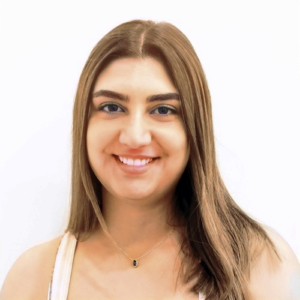
AUB, LU, USEK, and USJ participated in the Go-To-Market Coaching for Technology Transfer Officers training program organized by Berytech presenting Intellectual Property (IP) Portfolios of more than 240 technology transfer projects and competing for different growth opportunities presented by the program.
The Research to Innovation Lab is a technology transfer training program under THE NEXT SOCIETY and in partnership with iPARK – Royal Scientific Society in Jordan. It is intended to empower technology transfer officers in universities in managing commercialization processes for applied research, opening up opportunities for business and industrial collaboration and local and international exposure. The program enables the exchange of expertise with international key players to promote technology portfolios and establish collaborations facilitating the interface between research with industry.
About the Program
The 4 universities participated in a 6-month virtual program that ran from July 2020 to December 2020. They took part in 5 group sessions and 5 individual sessions with Dr. Mohammed Al Jafari, an expert in international property and commercialization. During the sessions, the participating universities were guided through a number of topics: technology partnerships and role of IP, good practice in building a technology brief, good practice in building an IP Portfolio, and good practice in IP Management for academic institutions. The training, alongside the support of the expert, provided the universities with the required knowledge and tools to create a marketable portfolio showcasing transferable technologies for their institution and to develop a roadmap for commercialization and a pitch deck for a high potential technology.
Participants described the program as a “very interesting program, we learned a lot on how to proceed from ideation to one-page potential technology, and present a pitch to meet growth opportunities requirements.” Also, described as “a great and enjoyable learning experience which we were able to implement quickly even with our limited resources”
Following the completion of the program, the 4 universities had to present their IP Portfolios and their most promising technology in front of a jury for the chance of benefitting from International or Local Growth Opportunities translating practically into an e-soft-landing mission and a local technical assistance voucher.

Selection Day
On Tuesday, April 20, 2021, the participating universities were invited to interviews with Dr. Mohammed Al Jafari, the Director of the Intellectual Property Commercialization Office at iPark, Krystel Khalil, the Programs Director at Berytech, and Zoe Lucon, Anima Investment Network’s Senior Expert.
The 4 universities presented the work they did during the program by showcasing their IP Portfolio highlighting their most promising technology.
They were evaluated based on the following criteria: Project Maturity and Stage (tech readiness level, team, and corporate structure), Market Potential (technology competitive edge, market attractiveness, and market accessibility), and Partnership Potential (licensing/investment/alliance potential and partnership readiness).
Following the interviews and after deliberation by the judges, USJ was selected to benefit from the local technical assistance voucher that will be providing technical support to help them develop their commercialization strategy and technology transfer office or to support their most promising technology to access the markets.
Meanwhile, AUB was awarded the international e-soft-landing mission where they will be digitally connected with an international partner to potentially access international markets, exchange with experts and practitioners, boost international business development, or grasp global partnership opportunities in the selected country.
Overview on the 4 Portfolios
AUB presented an IP portfolio with more than 25 innovations in the Biotech, Cleantech, ICT, and Packaging sectors most of which are patented. Their most promising technology brief focused on ediamond, an electromagnetic diabetes monitoring device. Ediamond is a noninvasive device that acts as a continuous monitoring system. Using electromagnetic waves received from the body of a person, it can track the glucose level with time. This novelty is enabling patients with diabetes to continuously monitor glucose levels in a non-invasive way. Another unique feature of this device is that it is multi-sensing, meaning it can be worn at different body locations such as the hand, wrist, neck, and leg.
LU presented the richest portfolio which included around 200 potential research topics being the biggest university in the country. It is important to note that following the Research to Innovation Lab and with the help of Dr. Al Jafari and the Berytech team, the Lebanese University has founded its first technology transfer office to manage and protect the intellectual property of applied research in their university and facilitate the commercialization process.
USEK presented a portfolio with around 15 innovations in the agriculture engineering, biochemistry, and biomedical engineering sectors. Their selected technology pitch was about “Early Detection of Prostate Cancer through Saliva”. This novelty presents the world with a noninvasive, easy, accessible, and cheap way to detect prostate cancer. Regular checkups will be accessible to all socio-economic levels and without the need for blood collection.
USJ’s IP portfolio was very selective with 7 applied research projects of great importance and high potential. The novelties cover the green energy, biomedical, food safety, and security sectors. Their technology pitch presented a new device able to detect meat freshness called MEATER. MEATER can differentiate between previously frozen chicken meat and actual fresh meat by studying the thermal history of one of the enzymes. It is a simple, cost-effective, and precise way to predict the history of many types of meats.
The Program Continues
The support does not stop here. Berytech will be organizing the last advocacy panel in September 2021 to culminate the advocacy work conducted by THE NEXT SOCIETY and Berytech since 2017 on technology transfer issues. It will be presenting the results of the Research to Innovation Lab program that was created following one of the 29 actionable recommendations to boost technology transfer & commercialization in Lebanon and promoted in the technical assistance report in 2020.
During the advocacy panel, the 4 universities will showcase their IP portfolio and technology pitch deck and will be matched with industry players for potential collaborations.

THE NEXT SOCIETY is an open community of changemakers, entrepreneurs, investors, corporates, NGOs, public and private innovation, research and economic development hubs from Europe and 7 Mediterranean countries: Algeria, Egypt, Jordan, Lebanon, Morocco, Palestine and Tunisia.
It aims at mobilizing, promoting and reinforcing innovation ecosystems and economic development in the MENA region. To reach these goals, THE NEXT SOCIETY launched a four-year action plan (2017-2020), co-funded by the EU up to 90% for a global amount of EUR 7.8 million budget. It supports the emergence of talents and innovative leaders who will drive the next trends and usages by targeting startups, clusters and technology transfer offices to accompany their development. www.thenextsociety.co
ANIMA Investment Network is an international economic development network that aims to work to the promotion and development of the Mediterranean. The ANIMA network brings together 80 members from 18 countries of the Euro-Mediterranean area, including national and regional investment promotion and economic development agencies, business federations, innovation centers, international investors and research institutes. ANIMA’s objective is to contribute to the continued improvement of the business and investment climate, as well as encourage shared and sustainable economic development in the Mediterranean. To know more about ANIMA Investment Network, please visit www.anima.coop.










